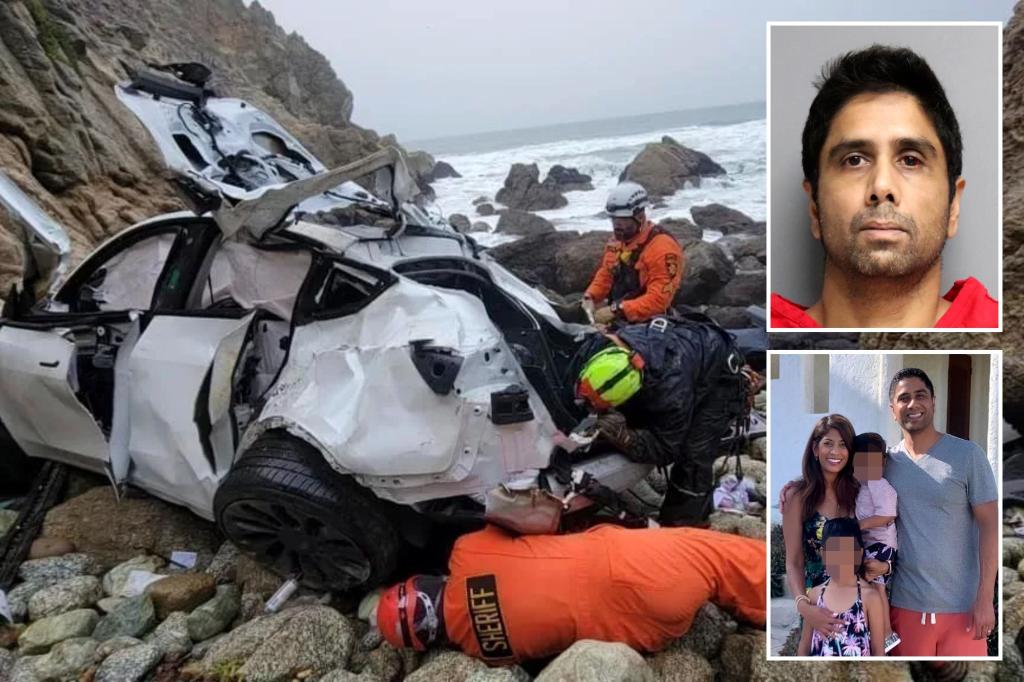The 43-year-old California doctor, Dharmesh Patel, who drove his Tesla with his family off a cliff, had been experiencing hallucinations and delusions at the time of the crash. He believed his children were being sex trafficked, which was triggered by concerns about the fentanyl crisis, the war in Ukraine, and Jeffrey Epstein. Two doctors testified at a hearing that Patel was suffering from major depressive disorder and had a psychotic break during the crash. Patel has requested a mental health diversion in his case, which would involve a two-year treatment plan instead of jail time.
If the judge grants Patel’s request for mental health diversion, he will be placed on a treatment plan that involves extensive outpatient care, group and individual therapy sessions, and meetings with a psychotherapist. The charges against him would be dropped if he does not commit any crimes during the treatment program. A Stanford psychiatric clinician, James Armontrout, would oversee Patel’s treatment. The doctors who evaluated Patel believe he is a good candidate for the program as he has shown motivation and progress with his treatment since the crash.
Despite Patel’s plea of not guilty to three counts of attempted murder, his wife, Neha, told investigators that he was suicidal and intentionally drove off the cliff. The crash occurred on January 2, 2023, when Patel drove the family’s car off a 250-foot cliff on Highway 1. His wife and children miraculously survived the crash. Patel claimed that the Tesla was experiencing tire issues at the time of the crash, but investigations found that the vehicle was not in self-driving mode and showed no signs of malfunction.
The prosecutors in Patel’s case argued against the diversion program, claiming that he was diagnosed with schizoaffective disorder rather than major depressive disorder. Schizoaffective disorder is a chronic mental condition similar to schizophrenia. They also raised concerns about the difficulty of monitoring Patel outside of the court system if he were to be granted diversion. District Attorney Stephen Wagstaffe emphasized the challenges of ensuring Patel remains on his medication without the oversight of probation or parole. Patel has remained in custody without bail at San Mateo County Jail.
If Patel is granted mental health diversion, his treatment would involve a combination of therapy sessions, meetings with a psychotherapist, and outpatient care over the course of two years. The doctors who evaluated Patel believe he is motivated and responsive to treatment, making him a good candidate for the program. Despite the tragic circumstances of the crash, Patel has shown progress in treatment and was diagnosed with major depressive disorder, which may be contributing to his delusions and hallucinations. The decision on whether or not to grant Patel mental health diversion will have significant implications for his future and the safety of his family.


